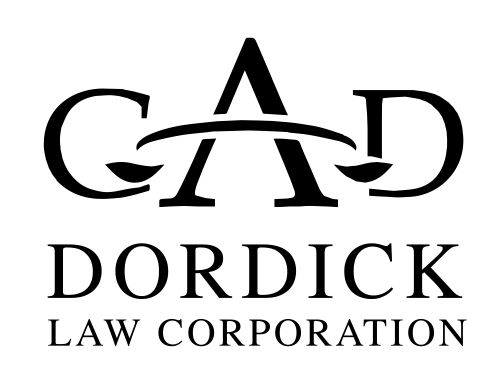There are many types of nice wheels on the market. This article is not
going to touch on those types. Instead, I am only going to cover a few
of the great & more popular models. So if I just happen to leave
your particular favorite out, Don't worry, this is not intended to be a
review. I simply picked a few of the top manufacturers and I will
discuss some the fundamental basics of aerodynamics in each. Every
model wheel here is appropriate for triathlon. So if your in the market
for an upgrade..... then check these out! First, let's cover some of
the technical basics. Aerodynamics is the study of how a solid body
moves through the air which surrounds it. So when I compare this
definition to the sport of cycling, it's about how a rider and bike
together overcome the air resistance created by forward motion. In
rotational motion, the moment of inertia is directly affected by the
amount of mass or weight. Inertia is the natural tendancy of an object
to remain at rest or in motion at a constant speed in a straight line
or axis. Lowering the moment of inertia and the wheels rotational
weight means less resistance to forward motion. This translates to
faster acceleration and better performance. Next, The speed you can
achieve on your bike is determined by two factors. The first is how
much power you are able to produce, measured in watts. The second is
the wind resistance this creates, commonly referred to as "drag" in
wind tunnel testing. The faster you go, the more of this drag there is
to overcome. This is why a rider with a technical advantage is often
able to defeat one with a greater power output. So that said, Take
advantage of every second you can get because they all add up. Here are
a few more technical facts about you and your machine. Approximately
80% of an average rider's output is used to overcome the effects of
frame & rider drag when cycling on flat terrain. Any reduction in
this percentage will therefore result in either an increase in speed or
a decrease in the effort required to maintain it. Wheel drag can
account for over 10% of your energy on the bike split alone. A front
aero wheel can save over one minute in a 40k bike leg. Steve Hed of HED
Cycle Wheels said: "It's a relatively simple matter to correctly design
an aero wheel capable of producing a low drag factor against a direct
headwind. However, we understand that a true headwind is virtually
unknown in nature as it relates to cycling aerodynamics. All it takes
is a 5mm lateral shift by the rider and the headwind becomes a side
wind in relation to the front wheel. Designing a wheel that performs
correctly in such a situation is therefore paramount. This is why all
of our wheels are designed and tested using wind angles from 5 to 20
degrees. By carefully regulating the size and shape of the side section
of our wheels, we can achieve optimum wheel performance no matter what
the wind conditions happen to be. So when we go faster in the wind
tunnel, you go faster out on the road." The Wheels.......... 1) Corima
wheels are hand fabricated with the same attention to detail as their
frames. One of Corima's technical breakthroughs is the use of a
structural foam to reinforce their structures. This allows the opposite
carbon walls to work together, improving the distribution of stresses
and obtaining a more rigid product at a lower weight than their
competitors. Corima wheels also use large diameter ball bearings with
water repellant grease and non-friction seals for very low rolling
resistance. -12 spoke tubular carbon front or rear with aero bladed
stainless steel spokes and hidden nipples for improved aerodynamics.
650c Tubular front 635g, 700c Tubular front 675g. 24 spoke rear is
extremely stiff with excellent power transfer and same bladed spokes
and hidden nipples. 650c Tubular rear 816g, 700c Tubular rear 856g. Rim
depth 40mm on 650, and 45mm on 700. (Tubular 650c pair 1451g, Tubular
700c pair 1531g.) Offered in both clincher and tubular versions. Front
clincher: $563.00, front tubular: $475.00, rear clincher: $626.00, rear
tubular: $549.00 -4 spoke tubular carbon front or rear with 4
aerodynamically shaped carbon fiber blades. Incredible lateral
rigidity. Carbon Rim itself only weighs 240g. So well balanced that it
will spin independantly in the front/side eliminating the "egg beater"
effect found in other wheels. Rim depth 36mm on 650 and 700c. I
recommend using the 12 spoke front and 4 spoke carbon rear combiation
more all ideal race day conditions. 650c front 822g , rear 968g
(pair=1790g), 700c front 762g, rear 908g (pair=1670g). Note: Use Corima
special ceramic brake pads for increased stopping power. Front
clincher: $719.00, front tubular: $599.00, rear clincher: $819.00, rear
tubular: $699.00, Rear clincher disc: $819.00, rear tubular disc:
$719.00 2) HED wheels. I really like their range of choices, you get
variety and the ability to mix and match. Common technical design
features in all HED wheels, include radially laced aero bladed spokes
on front wheels, and non-drive side rear wheels to improve aerodynamics
and reduce weight. All wheels have aluminum braking surfaces (clincher
& tubular). The hub used in all our HED wheels, is the aerodynamic
Sonic hub designed by Hed. -HED 3 spoke carbon has similar aerodynamic
efficiency the Deep, but the advantage is that its handling properties
are closer to the CX. Suitable for a wide variety of uses including
road race, time trial, and triathlon. Three airfoil carbon blades and
55 mm
deep rim. Aluminum rim for braking. I recommend this for the rear wheel
with a Jet 2000 frontset up, or can be used front and rear on 650c
triathlon bikes. Front clincher & tubular: $370.00, rear clincher
& tubular: $430.00 -Jet 2000 DEEP features aerodynamic Sonic hubs
and a super deep 90mm carbon rim. Almost as efficient as a disc wheel
in head winds. (Note: Legal for Hawaii Ironman.) 650c has 18 front
spokes, 24 rear. 700c has 24 front spokes, 28 rear. Front clincher
& tubular: $318.00, rear clincher: $410.00, rear tubular: $388.00
-Jet 2000 CX with structural carbon fiber, offers great value but now
has a 20% lighter aluminum rim. Custom full length spokes have hidden
nipples. Aero Sonic hubs. Smooth carbon fairing increases hoop strength
by up to 300%. I recommend this used for the front with a Jet 2000 Deep
at the rear, or front and rear for both 650c & 700c triathlon
bikes. Front clincher & tubular: $300.00, rear clincher &
tubular: $360.00 3) Spinergy wheels have long been a popular choice for
triathletes due to their style, affordability and durability. Its tri
tension design reduces vibration and shock, thus, reducing your fatigue
and permitting you to ride longer and faster. Is'nt that what we all
want. -Spinergy SPOX R1 wheel uses lightweight, vectran carbon fiber
spokes that have 5 times the tensile strength of steel with more
vibration damping, less weight and a longer fatigue life. Also, this
wheelset has an incredible low moment of inertia design, with the
weight centered at the oversized carbon hub. Rember the tech stuff from
above? This translates into a wheel with a very low rotating weight
giving faster accelerations and help in those tough climbs. The SPOX
are available with black or blue rims, and black and yellow spokes. R1:
$675.00/pair, R2: $459.00/pair -Spinergy REV-X features 8 flat bladed
carbon fiber spokes with an aluminum braking surface and an intergral
aluminum hub featuring pressed in sealed bearing cartridges. 700c front
tubular 860g, 700c rear tubular 1040g. Rim depth 47mm (700c pair
1900g). $649.00/pair 4) Zipp carbon fiber aerospace technology is
legendary. The end result are wheels perfect for both short coarse and
long coarse triathlons. Their assortment of different wheels equally
dampen harsh road shock and exhibit great strength, climbing and
acceleration characteristics. -Zipp 404's deep carbon fiber rim
features a new lay up design to increase the wheels lateral stiffness
with newly styled straight pull hubs and ovalized stainless steel or
titanium spokes to handle very high tension. With a 58mm cross section
and gentle convex wall curvature the aerodynamic performance and ride
quality is unsurpasssed. $999.00/pair -Zipp 909's are even deeper with
the same features as the 404's above make these wheels a very light and
aerodynamically efficient combination. The front 650c wheels are 16
spoke, while the 700c wheels are 18 spoke, with deep 68mm carbon rims.
Use these as a perfect matching set or pair up the deep section front
909 with a Zipp full carbon Disc on the rear for a super fast
combonation. (Note: I don't recommend this setup in high cross wind
race conditions.) $1249.99/pair. Rear disc: $ See Dealer... So there
you have it....Choose your aerodynamic weapons carefully. If your going
to buy just one one wheel, Purchase the front wheel first! It offers
the most time savings because it contacts undisturbed clean air. ê



